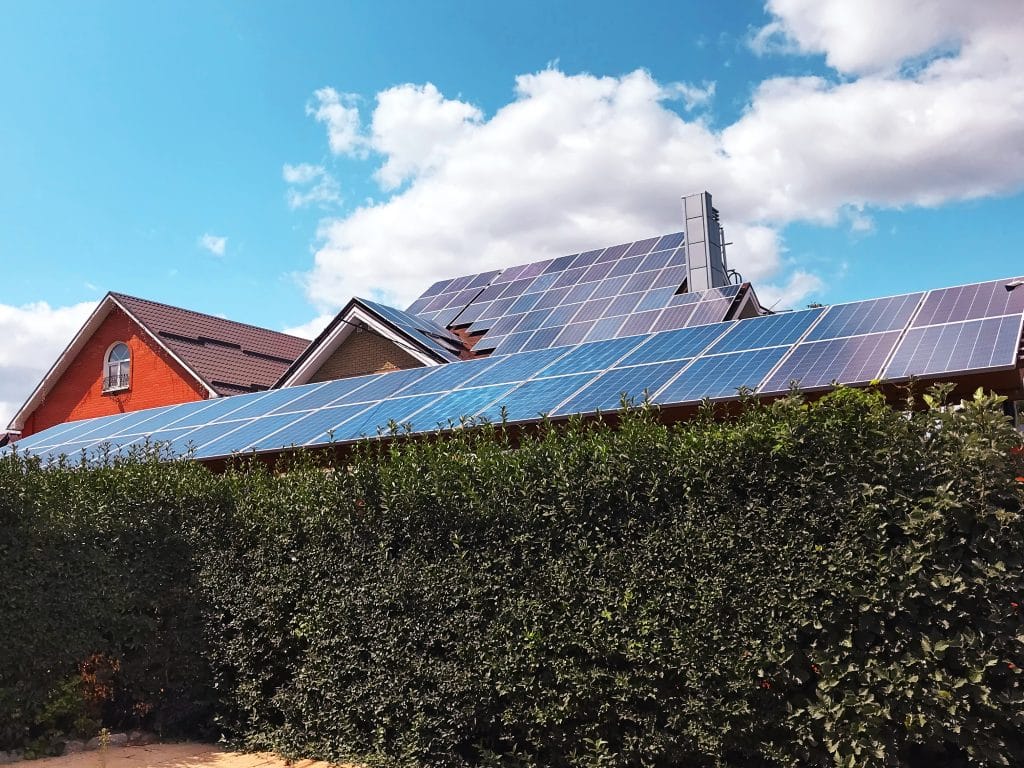Installing solar panels can be a great way to reduce your energy costs and help the environment. However, the cost of installing solar panels can be prohibitive for many homeowners. That’s where government subsidies come in. Although they won’t eliminate the cost, various rebates and tax credits are available to homeowners who install solar panels. So if you’re curious about some of the benefits you can receive from taking advantage of the government’s green energy initiatives, read on to learn about solar panel subsidies.
Contents
The Benefits Of Installing Solar Panels On Your Home

Installing solar panels in your home is one of the smartest choices you can make. Through photovoltaic cells, solar panels convert and store energy from the sun to power most appliances within your home. Not only will this help reduce your carbon footprint, but it will also save you money in the long run. Beyond reducing electricity bills, solar panels increase the property value of your home and add appeal and character, which can give you an edge overlooking buyers if you decide to sell.
Solar panel installation also provides freedom from utility company costs and reduces dependence on fossil fuels that are hazardous to the planet and its people. Ultimately, solar energy is a powerful concept that can have a positive impact on the environment and the wallets at the same time!
The Different Types Of Solar Panel Subsidies
Along with all the incredible benefits of installing solar panels, many government initiatives support this type of green energy. Here are some of the most common types of subsidies available:
State Tax Credits

The power of the sun has long been an energy source that has been extensively explored, and some states are now offering state tax credits to help subsidize the installation of solar panels. This incentive is being implemented to encourage and support a shift toward renewable resources for both environmental and cost-saving reasons.
These credits typically work by reducing the tax amount owed to the state where you live by a certain percentage of the cost of installing solar panels, which can be a great way to offset some of the costs associated with installing solar panels and make it more affordable for homeowners.
Federal Tax Credits

Suppose you’re considering installing solar panels on your home and would like to take advantage of some tax credits to offset the cost. In that case, you must know about the federal incentives available to you. Along with state-based tax credits, federal incentives support renewable energy sources, including solar panels.
One such incentive is known as the Residential Renewable Energy Tax Credit, which allows homeowners who install qualifying solar energy systems to receive a tax credit for up to 30% of the cost. So if you spend $5,000 on solar panels installed at your home, for example, you could receive a tax credit of up to $1,500 from the federal government.
Solar Panel Rebates

Solar panel rebates are another one of the most popular incentives for homeowners looking to invest in their renewable energy sources. These rebates make it easier for homeowners and businesses to switch from non-renewable energy sources like oil or gas by putting money back into their pockets.
In most cases, solar panel rebates will come directly from your utility company, helping to subsidize the upfront costs of installation and/or equipment. If you’re looking for ways to save money on solar panels and make this investment more affordable, check with your local utility company to see what types of solar panel rebates they may offer.
Net Metering

Net metering is an incentive that encourages individuals and businesses to use renewable energy, such as solar power, by providing credit for excess energy sent back to the grid. Initially designed to provide a monetary incentive to make the investment in solar panels worthwhile, net metering has also proven beneficial to utilities and electric companies.
By encouraging customers to produce their energy, they can reduce overall energy costs and infrastructure needs while still sending out electricity when needed, which allows grids to remain reliable while reducing the burden of continuing to invest in additional capacity gains.
Performance-Based Incentives (PBIs)

Performance-based incentives (PBIs) have also become a valuable option for encouraging the adoption of solar energy. Whether applied to individuals, businesses, or cities, PBIs provide an incentive structure that rewards those who switch to solar energy with a lower cost per watt than standard installation fees. This encourages people to go green and use solar energy, as it can be more financially beneficial in the long run.
In some cases, PBIs can even fully subsidize the installation costs for those in economically disadvantaged areas, helping make switching to solar energy accessible. PBIs are an effective tool for encouraging wider adoption of renewable energy sources and helping fight environmental damage.
Who Can Apply For Solar Panel Tax Credits?

Solar panel tax credits can greatly help those looking to invest in clean energy for their home or business. However, many people are unsure about who is eligible for these credits. The good news is that any person or business that purchases and installs eligible solar energy equipment, such as solar panels, may qualify for the credit from the Internal Revenue Service (IRS). These federal credits are available to anyone who has installed solar panel systems between January 1, 2017, and December 31, 2034.
As far as applying for state tax credits, you must first check with your state’s tax laws to see if you are eligible for these credits. In many cases, however, you will need to meet certain criteria to qualify for these credits, such as having an income of less than a specific amount or purchasing specific energy-efficient equipment.
How To Receive Your Federal Tax Credit

The steps are relatively simple if you already have solar panels installed and are curious about how to receive your federal tax credit. Your first step should be to check with your utility company or local government office for information about whether you qualify for any local or state incentives as well. Once you’ve determined that you are eligible for these credits, you must submit an application with the IRS to receive your federal credit.
Typically, you will need to provide proof of your installation, such as a receipt or invoice from your solar panel installer, along with relevant tax forms and documents. If you have any questions about applying for these credits, contact your tax advisor or accountant for more information.
Start Taking Advantage Of These Solar Panel Subsidies!
Whether you are an individual looking to switch to cleaner energy or a business trying to reduce your energy costs, there are options that can help make going green more financially attractive. Overall, many incentives are available to help encourage the adoption of solar energy and other renewable sources. To learn more about these solar panel subsidies and how you can apply for them, consult with your local utility company or speak with an energy consultant for advice. They will be able to guide you through the process and help you choose the best incentives for your needs.


